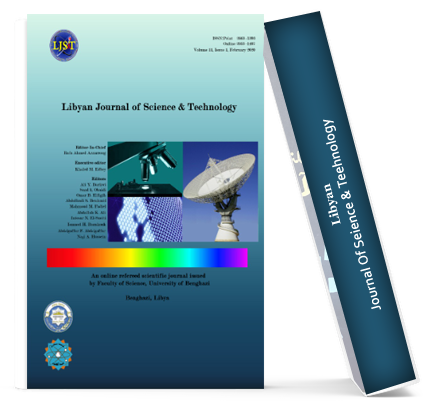Management of displaced distal forearm fractures in children
DOI:
https://doi.org/10.37376/ljst.v12i1.7061Keywords:
Kirschner wire, Children, Forearm fracturesAbstract
Distal both bones forearm fractures are quite common injury in children. They are generally treated by closed reduction and casting alone or with added percutaneous pinning with excellent results. The target of this prospective study was to delineate if re-displacement after stable reduction of displaced distal forearm fracture in a child can be prevented by percutaneous fixation with Kirschner wires. A complete of 48 children aged between 2-12 years with displaced distal both bone forearm fracture underwent either conservative treatment by immediate closed reduction and long arm cast in plaster room without anesthesia or surgical procedure by additional fixation with percutaneous Kirschner wires and long arm cast, with 28 had conservative treatment and 20 had surgery. All patients were available for follow-up with average of 6.7 months. Fractures fixed with percutaneous Kirschner wires showed no displacement, compared to three displacements within the fractures maintained by cast alone (chi-squared test, p <0.01). Range of supination and pronation is a smaller amount affected in fractures treated with pinning (6°vs.13°). Fewer complications were seen within the fractures treated by pinning than in fractures treated by cast alone (5% vs 17.8%). We conclude that the utilization of a percutaneous Kirschner wire to reinforce the reduction of the fracture in children who have a completely displaced metaphyseal fracture of the distal radius may be a safe and reliable way of maintaining alignment of the fracture. Lastly, use of percutaneous Kirschner wires to keep the reduction of the displaced distal forearm fracture in children is reliable method to stop re-displacement of the fracture.
Downloads
References
Canale, S. and Beaty, H. (2017) Campbell's Operative Orthopedics. Philadelphia 13th edn.
Do, T., Strub, W., Foad, S., Mehlman C, and Crawford A. (2003) 'Re-duction versus remodeling in pediatric distal forearm fractures', A preliminary cost analysis. J Pediatr Orthop B, 12(2), pp. 109-115.
Herring, A. (2007) Fractures of the Distal Forearm. Tachdjian's Paediatric Orthopaedics, 4th edn, Elsevier-Health Sciences Divi-sion.
Horii, E., Tamura, Y., Nakamura R., and Miura T. (1993) 'Premature closure of the Distal radial physis', J Hand Surg [Br], 18(1) , pp. 11-16. doi: 10.1016/0266-7681(93)90186-j.
Laurer, H., Sander, A., Wutzler, S., Walcher F, Marzi I. (2009) 'Thera-py principles of distal fractures of the forearm in childhood', Chirurg, 80(11), pp.1042-52`.doi:10.1007/s00104-009-1750-8.PMID:1958508.
Luscombe, K., Chaudhry, S., Dwyer, J., Shanmugam, C.,and Maffulli, N. (2010) 'Selective Kirschner wiring for displaced distal radial fractures in children', ActaOrthopTraumatolTurc, 44(2), pp.117-23. doi: 10.3944/AOTT.2010.2133.PMID: 20676013.
McLauchlan, G., Cowan, B. and Annan, I. (2002) 'Management of completely displaced metaphyseal fractures of the distal radius in children', A prospective, randomised controlled trial. J Bone Joint Surg Br, 84(3), pp. 413-7. doi: 10.1302/0301-620x.84b3.11432.
Miller, B., Taylor, B., Widmann, R. ., Bae D., Snyder B., and Waters P. (2005) 'Cast immobilization Versus percutaneous pin fixation of displaced distal radius fractures in children', Aprospective, ran-domized study’, JPediatrOrthop, 25(4), pp. 490-494. DOI: 10.1097/01.bpo.0000158780.52849.39.
Mostafa, M., El-Adl, G., and Enan, A. (2009) 'Percutaneous Kirschner-wire ixation for displaced distal forearm fractures in children', Acta Orthop Belg, 75(4), pp. 459-66.
Downloads
Published
How to Cite
Issue
Section
License
Copyright (c) 2024 Libyan Journal of Science &Technology

This work is licensed under a Creative Commons Attribution-NonCommercial-NoDerivatives 4.0 International License.










 LJST Copy rights form
LJST Copy rights form


